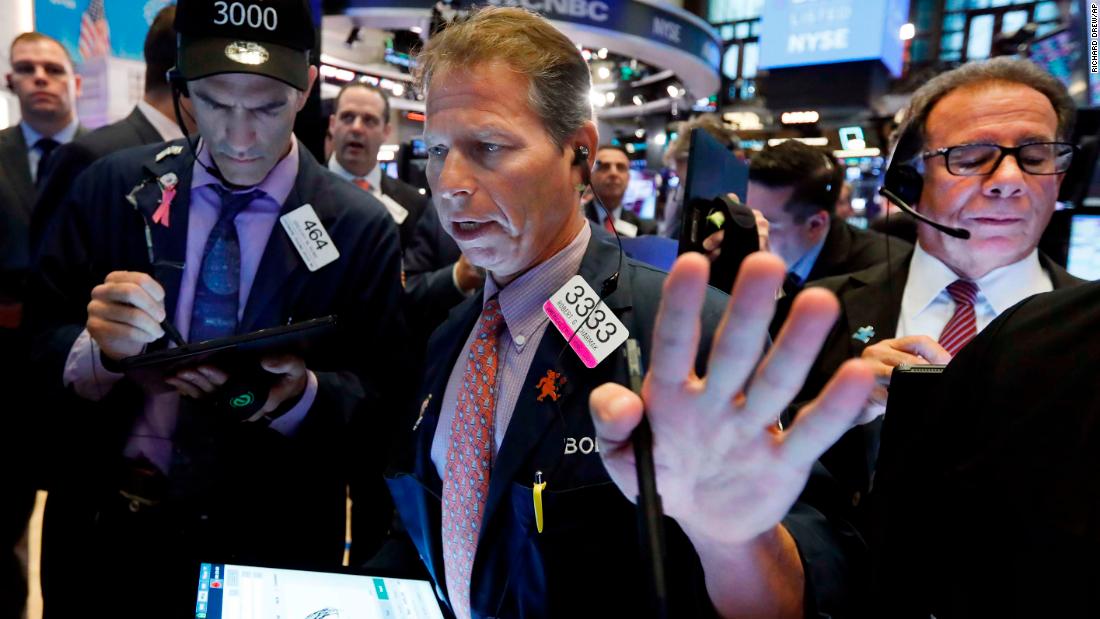[ad_1]
President Donald Trump once again called China a currency manipulator on Monday, saying the yuan devaluation was a “major violation.” Trump has long attacked China for its currency policy, even though the Treasury has refrained from officially labeling the country a currency manipulator.
China also announced Monday its companies have halted purchases of American agricultural goods. That helped to drive stocks even deeper into the red.
A day for the history books
At its worst, the Dow was down 961 points Monday. Even though the index clawed back some of its losses, it logged its worst day of the year, as well as its sixth-worst point drop in history.
Although Monday was a terrible day for the market, investors should put the losses into perspective. The Dow is still up more than 10% this year, while the S&P is up 13.5%. The Nasdaq has posted a gain of more than 16% in 2019 even after Monday’s selloff.
Asian markets all fell more than 1.6% Monday, and Hong Kong’s Hang Seng closed down 2.9% as protests continue in the region. In Europe, London’s FTSE 100 finished down 2.5%. Germany’s DAX and France’ Cac 40 closed 1.8% and 2.2% lower, respectively.
US government bonds rose and yields fell as traders looked for safe investments. Bond prices and yields move opposite to one another.
The 10-year Treasury yield declined to 1.7244%. The yield curve — the difference between shorter and longer-term bond yields — grew the widest since April 2007. That inversion of the yield curve has predated every past recession.
Escalating the trade war
Devaluing the yuan is one way China has of retaliating against the tariffs. A weaker currency helps Chinese manufacturers offset the costs of higher tariffs.
Analysts at Capital Economics said the move showed that Beijing has “all but abandoned” hopes for a trade deal with the United States.
In US economic data, the non-manufacturing index for July from the Institute of Supply Management undercut consensus expectations, which didn’t help matters.
[ad_2]
Source link

